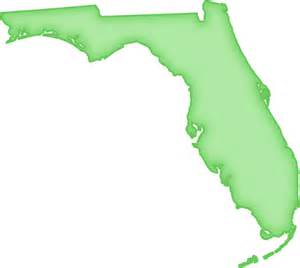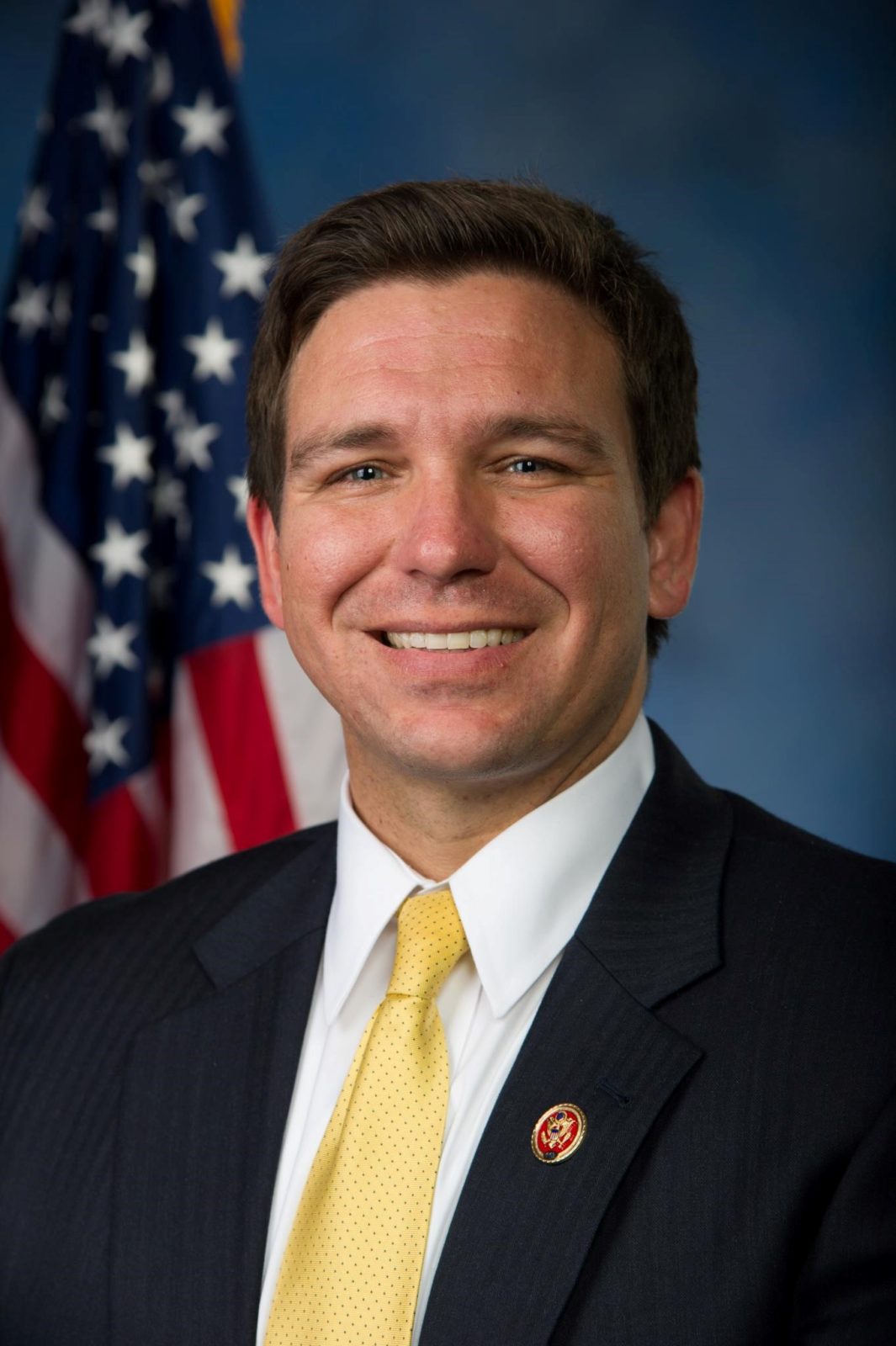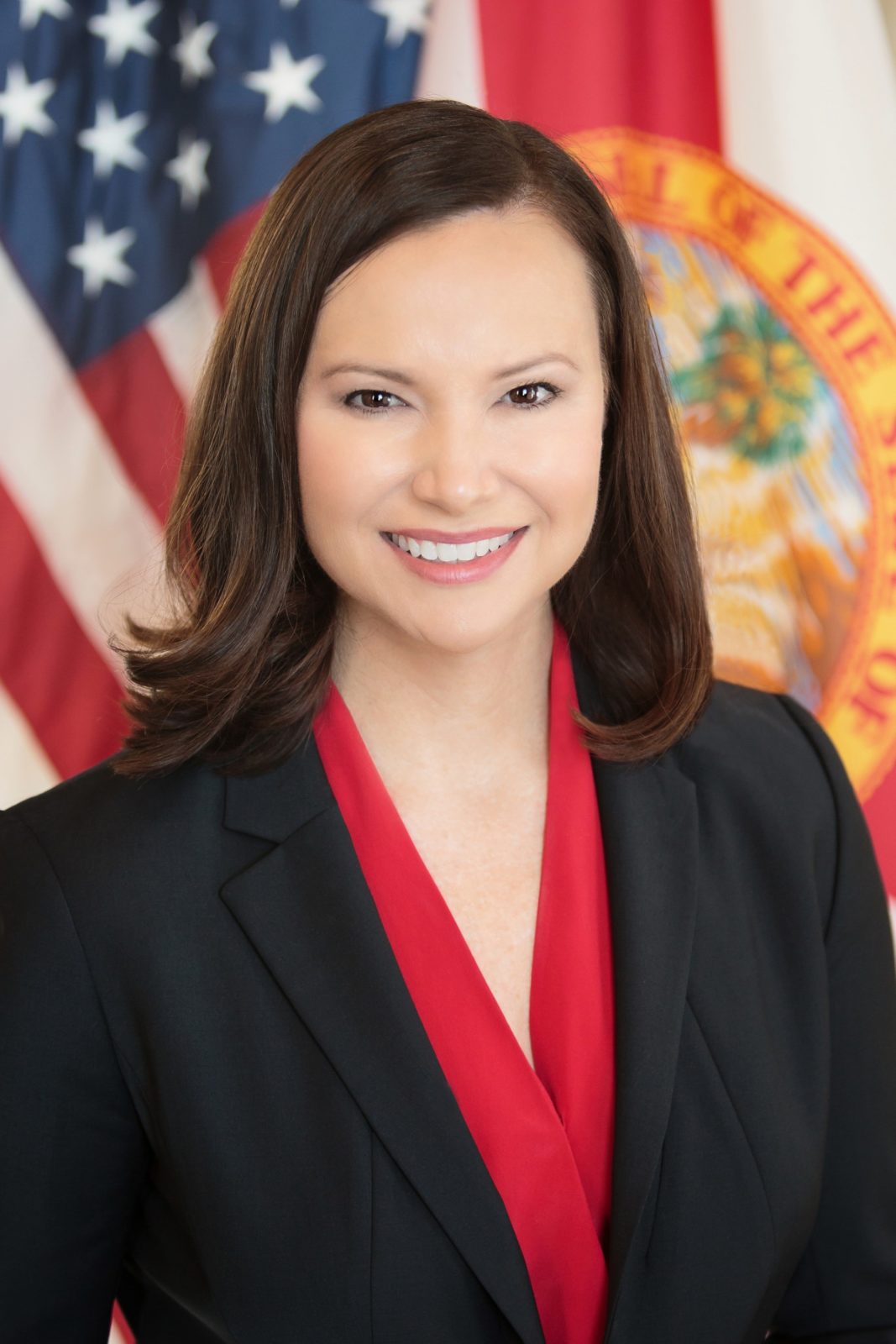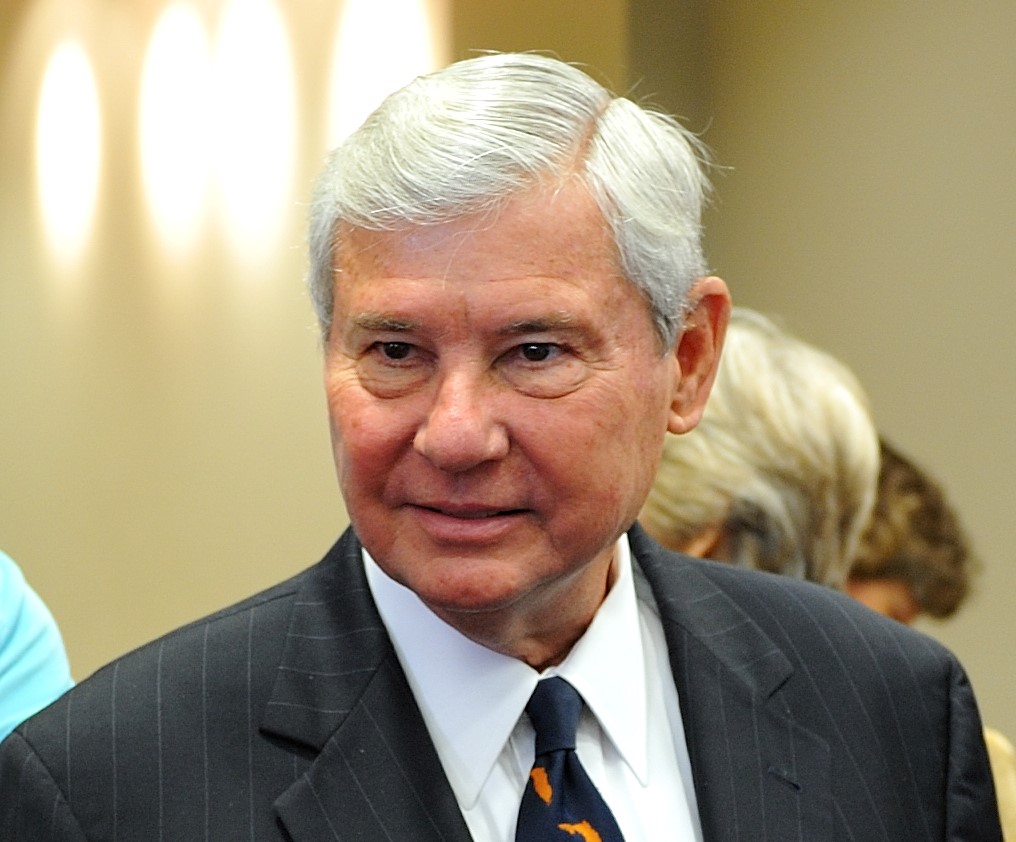- Home
- State Information
- Resources
- CCRI Materials
- Mental Health Fact Sheets
- Autism Spectrum Disorder
- Borderline Intellectual Functioning
- Bipolar Disorder
- Complex Trauma
- Epilepsy
- Executive Function Impairment
- Fetal Alcohol Syndrome Disorders
- Intellectual Disability
- Major Depressive Disorder
- Posttraumatic Stress Disorder
- Schizophrenia
- Specific Learning Disorder
- Substance-Related and Addictive Disorders
- State Information
- Mental Health Fact Sheets
- Browse
- Search
- CCRI Materials
- News & Developments
- Search
- About Us
- Log In
- Register
Florida

The information on this page provides a brief overview of capital clemency in Florida and is not intended to serve as the basis for a capital clemency petition or campaign. For additional information and sources, please see the full Florida Clemency Memo (March 2020) prepared by the ABA Capital Clemency Resource Initiative.
Contents
Florida Capital Clemency Memo
The Power Defined
Under Article IV, Section 8(a) of the Florida Constitution,
[T]he governor may, by executive order filed with the custodian of state records, suspend collection of fines and forfeitures, grant reprieves not exceeding sixty days and, with the approval of two members of the cabinet, grant full or conditional pardons, restore civil rights, commute punishment, and remit fines and forfeitures for offenses.
The governor may, at his or her sole discretion, deny clemency at any time, for any reason. The governor and the members of his cabinet collectively constitute the Board of Executive Clemency (“the Board”). Pursuant to Florida statute, the Board also has the power to appoint private counsel to a death row prisoner when the Board determines that the case is appropriate for executive clemency consideration.
The Decision Maker(s)
The Board is led by the governor and is composed of the members of his cabinet. Under Article IV, Section 4 of the Florida Constitution, the cabinet is composed of the Attorney General, the Commissioner of Agriculture and Consumer Services, and the Chief Financial Officer.
How Petitions are Brought
Current Florida practice for submission of clemency petitions follows specific guidelines laid out in individual contracts signed between FCOR and the clemency registry attorney. Instructions for how to submit a clemency petition and/or what to include are not made available to the general public. The current edition of the FCOR Rules for Executive Clemency (“Rules”), however, discuss the procedure FCOR uses when it initiates clemency review in a death penalty case.
In all cases where the death penalty has been imposed, FCOR may conduct a thorough and detailed investigation into all relevant clemency factors and provide a final report to the Board. The investigations performed by FCOR shall include, but are not limited to:
- an interview with the petitioner, who may have clemency counsel present;
- an interview, if possible, with the trial attorneys who prosecuted the case and defended the petitioner;
- an interview, if possible, with the presiding judge over the petitioner’s trial; and
- an interview, if possible, with the petitioner’s family.
Once an investigation into clemency has been opened, FCOR must notify the Office of the Attorney General (“O.A.G.”) and Bureau of Advocacy and Grants, and the O.A.G. must then notify the victim(s)’ families that an investigation has been initiated. The O.A.G. must collect written statements from the victim(s)’ families to be included in the final report that FCOR provides to the Board.
FCOR’s investigation will begin either at a time designated by the governor or, if the governor has not made a designation that a clemency investigation shall commence, it will begin “immediately after the defendant’s initial petition for writ of habeas corpus, filed in the appropriate federal district court, has been denied by the 11th Circuit Court of Appeals, so long as all post-conviction pleadings, both state and federal, have been filed in a timely manner as determined by the Governor.” The rules make specific note that “failure to complete the investigation according to the specified rules is not a sufficient ground for relief in a death penalty case.”
After FCOR completes its investigation, the commissioners who personally interviewed the petitioner must compile a final report detailing their findings and conclusions. The report must include (1) any statements made by the petitioner and petitioner’s counsel during the interview; (2) a detailed summary completed by each Commissioner who interviewed the petitioner; and (3) any information gathered during the investigation. The final report must be sent to the Board within 120 days after the opening of the investigation unless the governor allows for an extension of time.
All of the information gathered during the course of the clemency investigation, including the petition, are required to remain confidential and available only to FCOR members, the Board, and their staff. Only the governor has discretion to allow the records collected during the investigation to be inspected and copied to any person outside of FCOR and the Board.
Hearing Practice
After the Board receives the final investigatory report from FCOR, any member of the Board can request a hearing within 20 days of receiving the report. If a hearing is requested, the case is placed on the agenda for the next scheduled meeting or at a specially called meeting of the Board. The O.A.G. is responsible for notifying the victim(s) of record that a hearing has been set. The governor can request a hearing at any time in any case in which a death sentence has been imposed.
At the hearing, both the petitioner’s counsel and the state attorneys are permitted to make oral presentations no longer than 15 minutes. The victim(s)’ family and their representatives may make oral statements that do not exceed 5 minutes collectively. The governor is permitted to extend these time limits at his or her discretion.
Responding to a Petition
“If a commutation of a death sentence is ordered by the Governor with the approval of at least two members of the Clemency Board, the original order shall be filed with the custodian of state records, and a copy of the order shall be sent to the inmate, the attorneys representing the state, the inmate’s clemency counsel, a representative of the victim’s family, the Secretary of the Department of Corrections, and the chief judge of the circuit where the inmate was sentenced.” The O.A.G. has 24 hours to communicate the decision to grant clemency to the victim(s)’ family. In the case of a negative ruling, the Board is not required to make that ruling public. The Board is also not required to provide its reasoning for a clemency grant or denial in any case. In practice, attorneys have learned that their client’s clemency cases have been denied via the setting of an execution date.
Current Clemency Decision Maker(s)
Governor Ron DeSantis

Republican Ronald Dion DeSantis was elected to the governor’s office in 2018 after a narrow victory over Democratic Tallahassee Mayor Andrew Gillum. The general election was hard fought and drew national attention, with one of President Donald Trump’s “most unabashed allies” squaring off against an “outspoken progressive who would be Florida’s first black governor.” Representative DeSantis was leading by about one percentage point and fewer than 80,000 votes when Mayor Gillum conceded.
Governor DeSantis was born on September 14, 1978, making him, at 41, the youngest incumbent governor in the United States. He was raised in Dunedin, Florida, before attending Yale University and Harvard Law School. After graduation, he became an attorney and prosecutor in the Judge Advocate General’s Corps, U.S. Navy, and served in Iraq and at Guantanamo Bay.
DeSantis received an honorable discharge from active duty in February 2010. He published a book in 2011 titled Dreams From Our Founding Fathers: First Principles in the Age of Obama, before announcing that he would be running for the House of Representatives for Florida’s 6th District in 2012. DeSantis was victorious and was reelected two more times in 2014 and 2016. While in the House of Representatives, he was one of the founding members of the Freedom Caucus, the “ultra-conservative group” that pushed Speaker John Boehner into early retirement. He became a regular on Fox News and made a name for himself in the early years of President Trump’s administration by attacking special counsel Robert Mueller’s investigation. In January 2018, DeSantis announced that he was running for governor of Florida.
Attorney General Ashley Moody

Republican Ashley Moody was elected as Florida’s 38th Attorney General in 2018, defeating Democrat Sean Shaw. Before her run for attorney general, Ms. Moody served as a judge for the 13th Judicial Circuit Court in Florida from 2007 to 2017. She has also served as a federal prosecutor and adjunct professor at Stetson University College of Law. Attorney General Moody is a triple graduate of the University of Florida, where she received a bachelor’s and master’s degree in accounting as well as her law degree. She also holds a Master of Laws (L.L.M.) in International Law from Stetson University.
Commissioner of Agriculture and Consumer Services Nikki Fried
Democrat Nicole “Nikki” Heather Fried was elected as Florida’s Commissioner of Agriculture and Consumer Services in 2018, defeating Republican Matt Caldwell. Before her election as Commissioner, Ms. Fried had stints as a commercial litigator and public defender before becoming a prominent lobbyist for the medical marijuana industry. Like Attorney General Moody, Commissioner Fried is also triple graduate of the University of Florida where she received a bachelor’s degree in political science, a master’s degree in political campaigning, and a law degree.
Chief Financial Officer Jimmy Patronis
Republican Jimmy Patronis was elected as Florida’s Chief Financial Officer (CFO) in 2018, defeating Democrat Jeremy Ring. He had previously been appointed to serve as Florida’s CFO by then-governor Rick Scott following the resignation of Jeffrey Atwater.
Before being appointed to various positions under Governor Scott, Mr. Patronis represented District 6 in the Florida House of Representatives from 2006 to 2014. Mr. Patronis earned his associate’s degree in restaurant management from Gulf Coast Community College and his bachelor’s degree in political science from Florida State University.
Significant Past Capital Clemency Decisions
Grants

Capital clemency has been granted six times in Florida since 1976, in each case by Governor Bob Graham. Out of the six grants, three of the clemency recipients were white and three were black.
Learie Leo Alford’s death sentence was commuted in 1979 after Governor Bob Graham recommended to the Board that his sentence be reduced to life in prison. Alford was convicted of the rape and murder of a 13-year-old girl in 1973. Alford’s direct appeals were unsuccessful and the Supreme Court denied certiorari in 1976. In 1977, an eyewitness from trial recanted his testimony, saying that the actual murderer was larger in size than Alford. At Alford’s clemency hearing, the main argument made by Alford’s attorney was “Learie Alford did not commit the murder he was convicted of.”
Clifford Hallman was also granted clemency in 1979. Hallman was found guilty of killing a bartender with a broken drinking glass, putting her in the hospital for four days prior to her death. There was some indication, however, that the victim’s death actually resulted from bleeding that went unattended at the hospital. The hospital did not admit fault but settled a civil lawsuit with the victim’s family. The United States Supreme Court and the Florida Supreme Court both upheld Hallman’s conviction. Governor Graham recommended to the Board that Hallman’s sentence be commuted to life in prison, and the Board approved the grant.
Darrell Edwin Hoy was convicted of the murder of a teenage couple in 1975. Hoy’s accomplice was originally also sentenced to death but was retried and sentenced to life imprisonment. At the clemency hearing, defense counsel argued that Hoy was a “pathetic, childlike young man with the mentality of a 14-year-old” at the time of the crime and was manipulated by his accomplice who received a lesser sentence. In 1980, Governor Graham recommended commuting Hoy’s sentence due to lack of proportionality between Hoy’s sentence and the equally or more culpable co-defendant who actually pulled the trigger.
Richard Henry Gibson was granted clemency on May 6, 1980. Four men including Gibson were accused of robbing and killing a Brazilian sailor on leave in 1975. Gibson’s trial lawyer did not present any evidence, and Gibson was found guilty and sentenced to death. One of the other perpetrators was sentenced to life in prison, and the other two perpetrators were never punished. Governor Graham recommended clemency apparently based on the discrepancies in punishment among the perpetrators.
Michael Salvatore was convicted, along with two companions, of the 1975 murder of a Miami man. Salvatore’s counsel argued at the clemency hearing that the petitioner had nothing to do with the crime. In commuting the death sentence, Government Graham again cited the disparity between his sentence and those of two others involved in the crime. Salvatore’s sentence was commuted roughly 18 months after the conclusion of his direct appeal.
Jesse Rutledge was the last petitioner to be granted commutation of a death sentence in Florida. Rutledge was convicted in 1974 of breaking and entering a home, where he allegedly stabbed a woman and her three children. The mother and one of the children died. Rutledge maintained his innocence throughout trial, and there was evidence implicating another man. At a clemency hearing, Rutledge’s attorney told the Board that someone else was guilty of the crime, claiming that the police involved in the case were in a rush to hold someone responsible. Governor Graham recommended that Rutledge’s sentence be reduced to life in prison, and the Board approved the recommendation on April 19, 1983. There is some indication that Governor Graham commuted the sentence due to the possibility that another man “more closely matched the description of the suspect.”
Denials (where newsworthy or controversial)
In 2000, the Florida Times Union published an article discussing the seeming disappearance of capital clemency grants in the state. Between Governor Graham’s last grant of clemency in 1983 and when the article was published 17 years later, 161 death row prisoners had petitioned various governors and the Board for clemency. No petitions were granted. No Florida governor has granted clemency in a capital case since 1984.
Florida Resources
View Florida resources for download, including clemency petitions and other relevant practice materials. Please note that not all of the content will be visible to users who are not currently logged in or do not otherwise have practitioner-access to the website.
Page last updated on April 14, 2020
